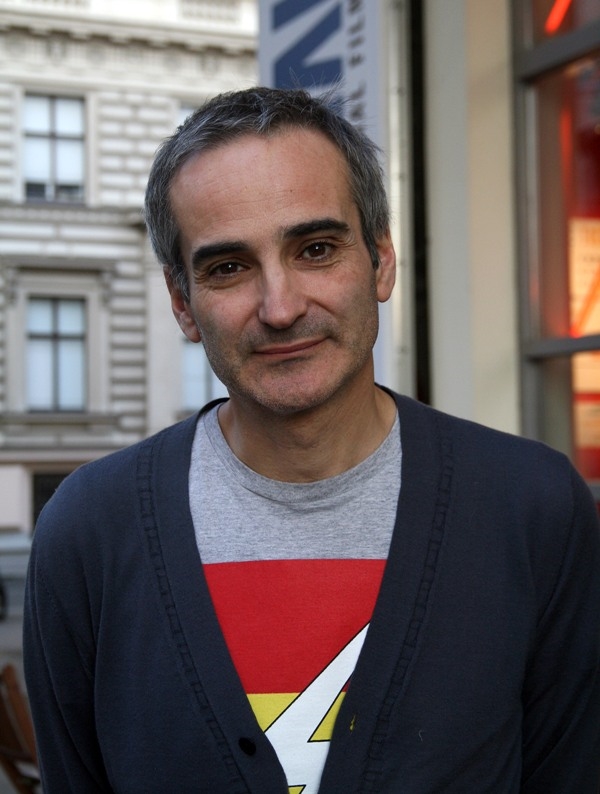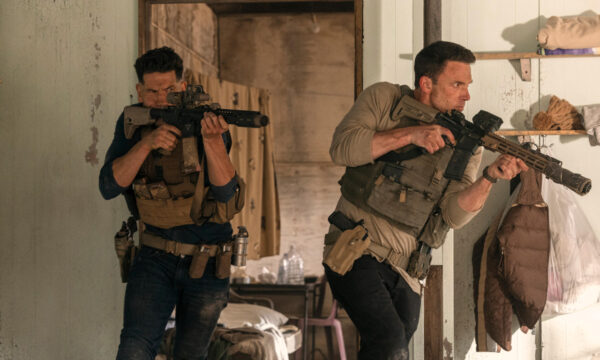We talk to Olivier Assayas about his newest film Something in the Air

Renowned French film director, screenwriter and critic, Olivier Assayas, is best known for movies such as Clean and Summer Hours. Assayas met with us to discuss his most recent critically acclaimed project, Something in the Air (Après Mai).
You recently won Best Screenplay at the Venice Film Festival. Why do you think there’s been such a positive response to Something in the Air?
You know, I was very honoured to get a prize, especially since the president of the jury was Michael Mann, who I’m a fan of. But why do they like it? I don’t know, ask them. You make movies hoping people will relate to them and you never know until you show it. Usually when you show a film at a film festival you have no idea how a crowd will react because basically a crowd has never seen your film, only a couple of individuals here and there, so you’re very anxious about the response. Any experience you have or confidence about the film is worth zero until it’s played back in the theatre.
Although you were younger than Gilles (the protagonist) in the movie, how autobiographical is the film?
The film is fairly autobiographical, I would say. It’s the story of a group of characters but the central character in the film, Gilles, is fairly close to me. A lot of the anecdotes in the story of Gilles – most of them are based on real life experience – are not so much about what happens to the other characters.
So, were you dumped or broken up with in the same way as he was in those instances?
The love stories are pretty close to reality. Lore is an ambivalent character. I mean, she has two sides. She is both a love but she’s also his inspiration. She’s like a muse; she’s more like an abstract idea of what attracts him to his art.
And what was it like, writing your own experiences into that?
I think that the process of writing and the process of film-making were basically constantly moving away from my own story. You know when you write, you use your own experience even when you’re describing the craziest fantasy world. Ultimately it’s your own fantasy – it’s your own world. It always comes from the inside, from deep inside, so every single time you write you are exposing something of yourself and eventually I think it’s sometimes even more embarrassing when you are exposing your fantasy world. Here, it’s factual, it’s anecdote, it happened, it’s real life. Somehow reproducing it in writing isn’t that threatening. What was interesting for me in terms of the process is that I used those anecdotes to somehow move not so much in the direction of representing the story of Gilles, but in terms of expanding the story and telling more of the collective history of a generation. I mean, the paradox of this film is that yes, it does have very intimate, personal anecdotes, but at the same time, it’s the least personal movie I’ve made because it’s a movie where I kind of melt, dissolve, into the collective history of my generation.
It’s funny that you say it’s one of your least personal films because so many people can relate to it; there are so many different sides and the characters are so dynamic. So what kind of challenges did you run into when writing the script from a younger perspective?
Well I suppose that one interesting part of it was researching it. Because ok, a lot of it I remember very precisely – vividly. But the chronology of the facts, the ambience, the politics, when exactly did that demonstration happen? Why did it happen? What was the actual chronology? I had to research it. And I had to research the music of the time. So it was kind of exploring my own history, my own background, and it kind of resurrected lost memories. And it’s something you can do, it’s much simpler to do with the Internet. You know, if I had written this film ten or 15 years ago, I could not have been that accurate because here, it is accessible, like in two clicks you are there, you have the actual facts, the dates, the places, photos, even before someone does the research for you. You do your own research when you are writing and it gives a precision and accuracy – something that was not possible before.
Are the supporting characters based on real people?
Yes, yes, yes, they are. The girls, they are closer. The other characters are a little bit… Eventually a mix of one or two characters. It’s not as specific.
In what ways were the girls close?
They’re real in the sense that one of them is dead. The other I’ve lost touch with but I’m sure she’s around and I’m sure she’s seen the film. If she has seen the film, I’m sure she has recognized herself in more ways than one.
Do you have an overall message you aimed to convey to audiences?
No, I don’t think you make movies to convey messages. I think that movies are more poetic: they are ultimately more, hopefully more mysterious, and deeper than that. I think that movies eventually transmit emotions, they transmit feelings, they transmit questions. Movies are about questions more than about answers, absolutely. So if the audience walks out of the theatre with questions, I’m happy. If they have answers, please give them to me.
The film doesn’t exactly conclude – what do we hope for?
It does not conclude because I don’t believe in concluding, I believe in opening. I think that movies should end more or less where another movie could start – it needs a sense of opening. And here, we leave the character of Gilles basically when he finally understands what movies are about, and what movies are: they’re about resurrecting the past. Movies can revive his lost love. And finally he understands that in the same way a painting or something extremely intimate for him can, movies can also be something intimate, something that connects him to Lore, who basically was his muse. Lore was the first judge of his painting and in a certain way movies bring him back to her, and that is a million times more relevant than working in the industry or making militant documentaries or whatever. Finally, he is exactly at the very moment when he begins his journey as a filmmaker.
Do you have any more upcoming projects in the works?
I will be shooting a movie with Juliette Binoche this summer. We will be shooting in Switzerland and Germany, in English language.
We look forward to it!
Natasha Fonseka
Something in the Air is released nationwide on 24th May 2013. Read our review here.
Watch our interview with director Olivier Assayas here:























Facebook
Twitter
Instagram
YouTube
RSS